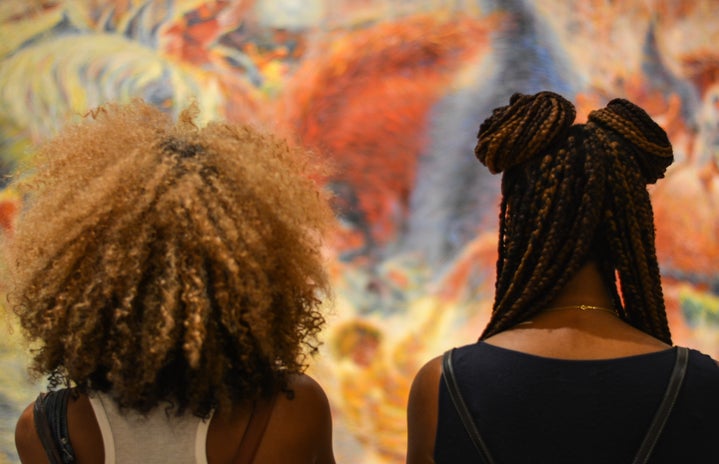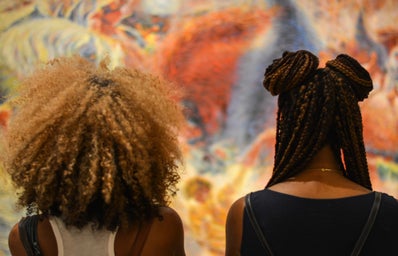The performance of Blackness and what it means to be Black can not be defined easily. When I was young and ignorant, being Black meant listening to only Black artists, having only Black friends, being able to speak African-American Vernacular English (AAVE) fluently, never perming my hair, and overall, just being able to identify with the Black families and characters I saw on television. I felt this way growing up because I would oftentimes be called an Oreo, which describes a person who is Black on the outside, but white on the inside. Despite my love for all things Oreos, even I knew that was meant as an insult. To the other black youth around me, I wasn’t allowed to listen to Taylor Swift or Coldplay, my permed hair meant I wanted to have straight hair and be white, and my lack of knowledge around famous African American artists of the ’90s meant I was uncultured.
I went to a predominantly white elementary, middle, and high school, so I was never fully ostracized for these things, and like my friends who used to tease me about these things grew up, so did I. We all realized that Blackness does not have a music type, a certain way to speak, or a hair type. I also came to terms with the fact that my lived experiences are obviously different since my parents were not born here, so I grew up on Haitian and Caribbean music and culture.
When I entered college and attended another predominately white school, I faced a new identity crisis. Before, I was only ever surrounded by a handful of Black people my age, but now I was among an entire community of Black people who made me feel like an imposter in my own skin. It is not their fault, but it made me recognize aspects of myself I did not pay attention to but were now the only parts of myself that made me insecure. I had almost zero knowledge of Black hair and felt embarrassed whenever I would go out because I felt like everyone was ultra-focused on my wig. I also felt the need to never blast any music that wasn’t by a Black artist when I was around new people, and over time I realized I was repeating the same habits of my high school days. In my heart, I always knew that Blackness cannot be defined by these things, and that really, it cannot be defined at all, but I found myself attempting to put on a performance of Blackness.
People who still go by this weird way of boxing individuals based on the cultural habits of an ethnic group need to realize that individual experiences are what shapes a person and not the experiences of a group. This does not only go for my Black classmates who made me feel less than, but also for non-Black people who feel like they get a say in what counts as Black and what doesn’t. What you see on television and in movies is not the only Black experience, and is not the only way Black people exist. Some of us never grew up with knowledge of our own hair and are just now starting our natural hair journey, some listen to Coldplay because they are amazing and put out awesome music, and some of us do not speak in AAVE because we never learned how. If I were to come up with what it means to be Black, it would be both haunting and beautiful. To be Black means to live in a world where your skin color can be the reason you are barred from certain places, kicked out of public businesses, barred from jobs and opportunities, profiled, arrested, and killed. To be Black means to minimize yourself so that you don’t make others uncomfortable. Lower your voice and change your tone, put on your “white” voice, do not speak about racism or colorism. It also means to be proud of your history. Be proud of those who came before you and broke down barriers despite the fences built to keep them out. To continue on fighting for those same things decades later because the world you live in has improved, but still needs work. To be Black means to love your skin, your culture, your history. To be Black is to, well be Black.





